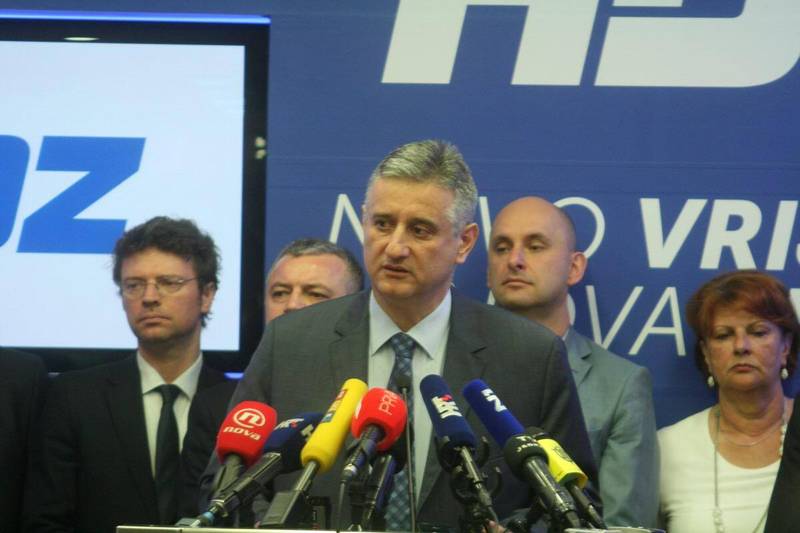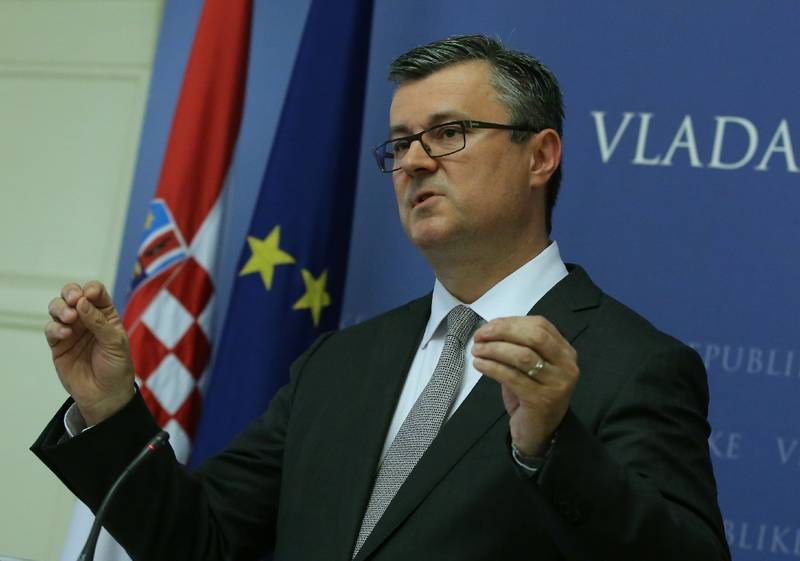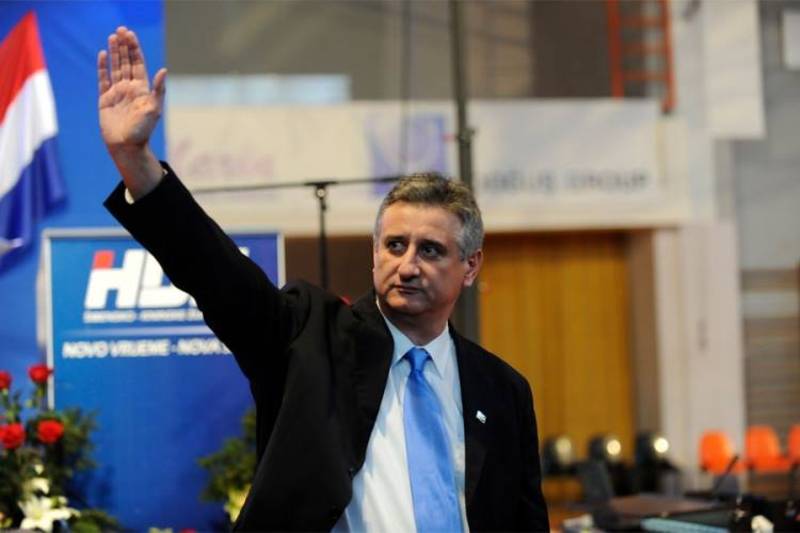What Is Going on in Croatia?
Adelina Marini, June 22, 2016
 There is a fierce battle going on at the moment in the newest member of the European Union between forces of the past and reformist powers. A battle, which is already costing a lot to the country, which has hardly raised its head above the 6-year long recession, having a huge public debt, and facing a long list of radical reforms, which will require some very strong political will, unity, and most of all stability. The battle is about whether Croatia will go the way of Hungary and Poland, meaning the way of conservative revolution and illiberal democracy with a pinch of Balkan political arrogance and corruption, or it will choose the way of the Baltic states, which in a very short time implemented some painful reforms and transformed into economic tigers, thanks to which they never felt the economic crisis in the EU and the euro area. Moreover, despite their miniature size, they turned into influential member states, whose opinion is sought. Lithuania is a strong anti-Russian voice in the field of foreign relations and a conductor of strict discipline and reforms in the euro area. Estonia is an example of e-government and even got invited to share its experience with the German government, and Latvia showed high political integrity when Prime Minister Valdis Dombrovskis resigned after the roof of a new supermarket caved in. He was later rewarded for his courage with a high position in the EU – Vice-President of the Commission, responsible for the euro – a man with experience in handling a severe economic crisis, who managed in just two years to pull a country out of economic recession the size of the Greek one to a European economic tiger.
There is a fierce battle going on at the moment in the newest member of the European Union between forces of the past and reformist powers. A battle, which is already costing a lot to the country, which has hardly raised its head above the 6-year long recession, having a huge public debt, and facing a long list of radical reforms, which will require some very strong political will, unity, and most of all stability. The battle is about whether Croatia will go the way of Hungary and Poland, meaning the way of conservative revolution and illiberal democracy with a pinch of Balkan political arrogance and corruption, or it will choose the way of the Baltic states, which in a very short time implemented some painful reforms and transformed into economic tigers, thanks to which they never felt the economic crisis in the EU and the euro area. Moreover, despite their miniature size, they turned into influential member states, whose opinion is sought. Lithuania is a strong anti-Russian voice in the field of foreign relations and a conductor of strict discipline and reforms in the euro area. Estonia is an example of e-government and even got invited to share its experience with the German government, and Latvia showed high political integrity when Prime Minister Valdis Dombrovskis resigned after the roof of a new supermarket caved in. He was later rewarded for his courage with a high position in the EU – Vice-President of the Commission, responsible for the euro – a man with experience in handling a severe economic crisis, who managed in just two years to pull a country out of economic recession the size of the Greek one to a European economic tiger.
What is stopping Croatia from becoming the EU’s Balkan tiger?
The past. There is not a single election in Croatia that goes without debates on Communism and Ustashianism (Croatian Fascism), brought into the 21-st century by the two largest political powers – the Social Democratic Party (SDP), led by Zoran Milanović, and the Croatian Democratic Union (HDZ), led by Tomislav Karamarko. Back in November of last year, however, Croats said “enough is enough” and wedged a new reformist power between the two political mastodons – Most of independent lists, led by Božo Petrov - which totally wrecked the plans of the two parties, which benefit from each-other’s existence. After long and arduous negotiations a coalition government between the HDZ and Most was formed, led by the completely unknown Tihomir Orešković – a member of the Croatian Diaspora in Canada. His appointment was at the request of Most, who wanted a non-partisan, expert prime  minister. The problem with Orešković, however, is that he speaks very poor Croatian and there are also doubts he understands it well too, which pulls him away from the country’s citizens and problems.
minister. The problem with Orešković, however, is that he speaks very poor Croatian and there are also doubts he understands it well too, which pulls him away from the country’s citizens and problems.
It is important to note straight away that the HDZ have an affinity towards secret services. Leader Tomislav Karamarko has been boss of a security agency and minister of interior. His closest deputy is also involved with the services. The HDZ hoped to be dictating the rules, but Orešković turned out to be a tough nut to crack, playing in union with Most. The first order of business for the HDZ was to start a battle for the harnessing of the country’s power structures. Resistance by Most and PM Orešković led to a complete standstill in government and parliament. President Kolinda Grabar-Kitarović also went into the battle for harnessing the repression machinery of the country. While this heavy battle raged, under pressure from the HDZ there began mass beheadings of key state institutions-guardians of democracy – the first head to roll was that of the boss of national radio and television, followed by replacements of anchors of the most-watched news broadcasts. The boss of Croatian Council for Electronic Media also resigned, which drew the attention of the European Commission and the Council of Europe.
The HDZ also requested substitutions of the bosses of the specialised anti-corruption prosecution and tried their hand at the Chief Prosecutor and the Ombudsman. In other words, Croatia was facing an even scarier scenario than the Polish and Hungarian one.
Much like it happened in Poland and Hungary, and as is quite common back home [Bulgaria], this did not stir the Croats’ anger at all. The thing to pull them out of their socks, however, was the scandal surrounding the First Deputy PM and HDZ leader Tomislav Karamarko, after it was established that he was in heavy conflict of interest because of his wife’s PR services contract with the lobbyist for Hungarian oil company Mol Josip Petrović, who is also a close personal friend to Karamarko. Mol acquired a large portion of the Croatian oil company Ina, thanks to the former Croatian PM and former HDZ leader Ivo Sanader, who got sentenced to 10 years in prison for it three years ago, which opened wide the doors of the EU to Croatia. The country turned into a guiding light to all countries of the Western Balkans, which started viewing the imprisonment of prime ministers and ministers as the shortest way to a successful transition from totalitarian to a democratic republic and respectively EU membership.
This scandal broke the camel’s back and a heavy battle began in parliament for overthrowing the government and most of all kicking the HDZ out of power. The deadlock of previous weeks began untangling this week [13-19 June] with the fall of the government. The HDZ, however, in a typical Balkan authoritarian manner, refuses to back down. The speaker of parliament is still procrastinating the dissolution of the Sabor (the Croatian Parliament), which will clear the way to snap elections, which the HDZ fears, for damages from the scandals are already huge, as polls are showing. Even President Kolinda Grabar-Kitarović stated yesterday [June 17] after some consultations on forming a new majority, that the only way out are snap elections.
Croatia has for weeks now been held hostage to Tomislav Karamarko’s political survival and his murky past. The fall of government will not solve the problem, for in order for Croatia to break away from its past and take the Baltic road, it will take for its largest political party, which is a symbol of Croatian independence, to reform itself by clearly denouncing its corrupt past, by liberalising and turning towards the future. What has so far protected Croatia from Polish-Hungarian authoritarian scenarios is the fact that it has two very strong political powers, which compete with each other, and Croatian citizens either expect of them to change, or seek hope in new political formations, of which there are plenty on the horizon. Unfortunately, some of them are as dangerous as SYRIZA in Greece, PODEMOS in Spain and other radical-left movements throughout Europe. Thus it is important that these two political forces control each other, but in order to have a healthy, strong democracy, these two parties need to undergo a deep catharsis, to bury the Ustasha-Communist rhetoric, and pay attention to the problems of Croats, which are not negligible.
 Croatia is the third state in the EU after Greece and Spain in levels of youth unemployment, with the country still having not finalised the transition from centralised state economy to a free market economy. Difficult and painful reforms of the pension system, labour market are necessary, and as it became clear from mass protests on June 1st, a radical reform of the education system as well. It is obvious that Croats are ready to take the pain if they are, however, certain that they are backed by honest and selfless leaders, who will not hold an entire country hostage to their political survival, but rather sacrifice their political career in the name of their country’s future. Croatia can do it. And this is the stake right now. Otherwise, the bitter road of Bulgaria awaits it. The problem is that a Croatia, which is weak and looking at the past, is a risk to the already too flammable Balkan region. There are people in power in neighbouring Serbia, who played a hard to forget role in the wars for disintegration of former Yugoslavia, and stability in Bosnia and Herzegovina depends entirely on stability in Serbia and Croatia.
Croatia is the third state in the EU after Greece and Spain in levels of youth unemployment, with the country still having not finalised the transition from centralised state economy to a free market economy. Difficult and painful reforms of the pension system, labour market are necessary, and as it became clear from mass protests on June 1st, a radical reform of the education system as well. It is obvious that Croats are ready to take the pain if they are, however, certain that they are backed by honest and selfless leaders, who will not hold an entire country hostage to their political survival, but rather sacrifice their political career in the name of their country’s future. Croatia can do it. And this is the stake right now. Otherwise, the bitter road of Bulgaria awaits it. The problem is that a Croatia, which is weak and looking at the past, is a risk to the already too flammable Balkan region. There are people in power in neighbouring Serbia, who played a hard to forget role in the wars for disintegration of former Yugoslavia, and stability in Bosnia and Herzegovina depends entirely on stability in Serbia and Croatia.
*This article was originally published in the Bulgarian news website Terminal 3 in Bulgarian on Saturday, June 18th, before Tomislav Karamarko resigned as HDZ leader and before the parliament voted dissolution and scheduled snap elections
Translated by Stanimir Stoev
 Kolinda Grabar-Kitarovic | © KGK
Kolinda Grabar-Kitarovic | © KGK Jozo Rados | © European Parliament
Jozo Rados | © European Parliament Aleksandar Vucic, Andrej Plenkovic | © Vlada RH
Aleksandar Vucic, Andrej Plenkovic | © Vlada RH